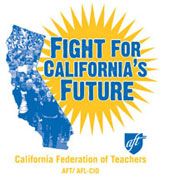Educrats: Collective bargaining rights trump existing state law
By Chris Reed
The key to understanding Golden State politics is knowing that the most powerful forces in Sacramento by a wide margin are the California Teachers Association and the California Federation of Teachers. Using union dues and benefitting from the bizarrely enduring notion that what is good for teachers is good for students, the CTA and CFT dominate Sacramento the way the railroads dominated early 20th-century California.
Their overriding goal: operating public schools as a lucrative jobs program where practically nothing can get a teacher fired, up to and including taunting a tortured teenager for his failed suicide attempt.
But now they face a potentially game-changing challenge to their primary goal, which has triggered a panicked reaction from the teachers’ union puppets who control the Legislature. It stems from Los Angeles Superior Court Judge James C. Chalfant’s June ruling that the Los Angeles Unified School District had to include student performance when evaluating teacher laws because of a provision in a 1971 state law, the Stull Act, that had been ignored for decades. As Chalfant tersely put it, “[P]arties may not enter into a contract that violates a statutory law.”
This has been much reported on, but not so much the jaw-dropping legal arguments coming from the California Public Employment Relations Board. Until a May 2011 shake-up, PERB was a low-profile state agency that helped resolve labor disputes involving government workers. But wIth new top lawyer M. Suzanne Murphy, the former legal counsel for the California Nurses Association, leading the way, PERB has redefined its role as being the partner of public employee unions.
In a brief filed with Chalfant, Murphy actually argued that teachers’ collective bargaining rights — which were granted by the Legislature in 1975, four years after the passage of the Stull Act — trump state law. So even though state law says student performance must be part of teacher evaluations, PERB says state law only kicks in after unions exercise their full ability to impede change through collective bargaining.
Blocking pension reform
This is another version of the unique argument that PERB has used to try to block first the vote on and now the implementation of a sweeping pension reform proposal approved by San Diego voters in a June landslide. That argument: Elected officials can’t be involved in initiative campaigns if they have the potential to affect workers whom they oversee because that violates collective bargaining rights. The barely hidden goal is to make it far more difficult for California voters to use their constitutional right to direct democracy to go after our current version of rail barons.
So how has Sacramento reacted to the possibility that veteran teachers’ de facto lifetime tenure might be in peril, and that finally teachers will face objective evaluations of their performance?
With the usual ludicrous kabuki of offering up “reforms” that purport to address real problems caused by special interests but actually strengthen the special interests.
After Judge Chalfant’s ruling, Assemblyman Felipe Fuentes, D-Sylmar, swiftly revived a bill he had introduced in 2011 to change how teachers are evaluated. But school reformers quickly noticed that amid the bells and whistles included in the measure to make it appear as if teachers would actually face some sort of rigorous scrutiny was a provision that said, yes, all changes were subject to collective bargaining at the local level. Even the editorial board of The Los Angeles Times realized this is nuts.
Why doesn’t the Legislature just cut to the chase and pass a law saying all decisions in California, public or private, are subject to collective bargaining with the CTA and CFT?
Perverse politics
If you live outside of California, the perversity of our politics probably seems hilarious — a West Coast version of a Carl Hiaasen novel in which the teachers are the heartless villains, not psycho Florida developers. But if you have a child in the Golden State’s public schools, it’s sickening to watch.
Day-in and day-out, the Democrats who dominate Sacramento fiercely protect the idea that the main function of the K-12 system isn’t to educate kids. Instead, it’s to provide veteran teachers with well-paying jobs and ironclad job protections — and 16 weeks of annual vacation.
The sick twist to this is that the teachers’ unions are empowered by a party that pretends to be the avatar of social justice. In Sacramento, social justice means lifetime jobs for bad teachers in school districts whose campuses increasingly resemble Potemkin villages, with 90 percent-plus of operating budgets routinely going to employee compensation and little left for books, computers and other education tools.
The “Peanuts” comic strip once had a Sunday panel in which Lucy asked her grandmother why — if there were a Father’s Day and a Mother’s Day — there wasn’t a Children’s Day. Her grandma replied, “Every day is Children’s Day.”
Those were much more innocent times. In California, every day is Public Employee Day.
Reed is an editorial writer for the U-T San Diego newspaper.
Related Articles
Poll: Californians think higher ed is too expensive, love the quality
Californians are concerned over the cost of the state’s public colleges and universities, just as two of the state’s three
There are no Henry Cuellars among CA’s Democratic pols
Jan. 29, 2013 By Chris Reed As a libertarian believer in free minds and free markets, I’ve watched for decades
Bill would streamline getting a college degree
Jan. 4, 2013 By Katy Grimes SACRAMENTO — The cost of attending California’s public universities and colleges has skyrocketed in




